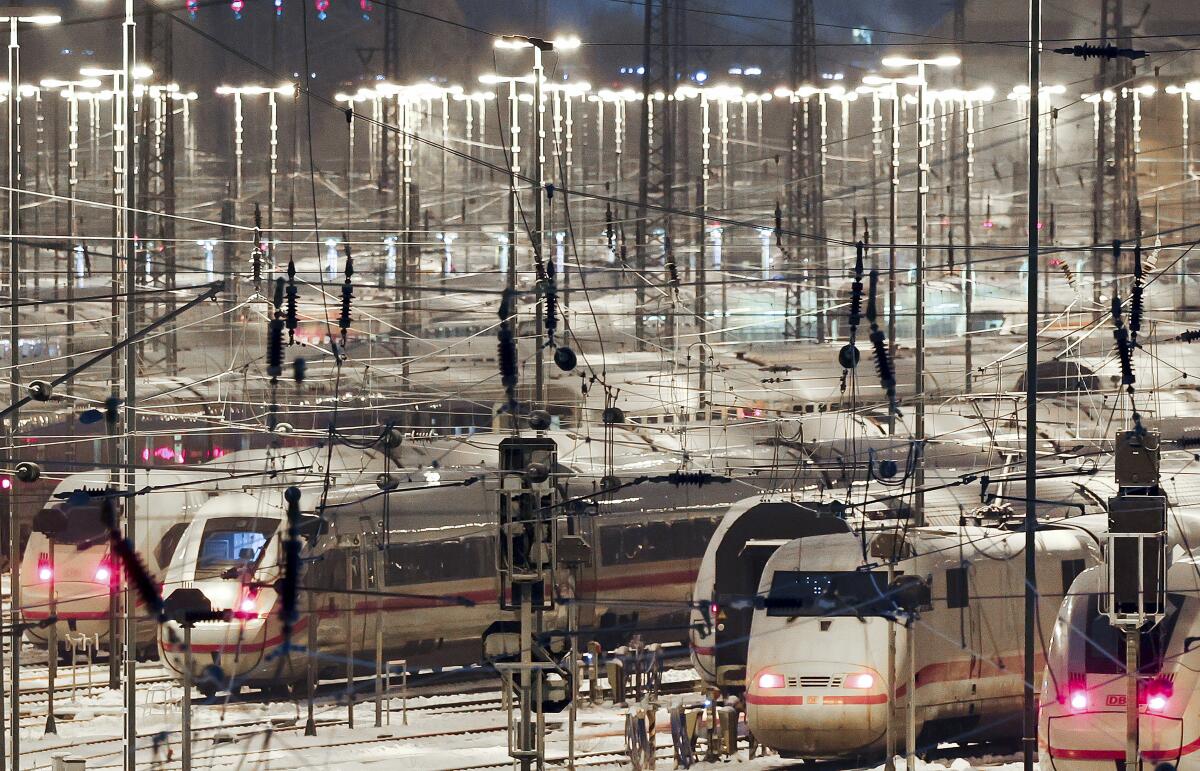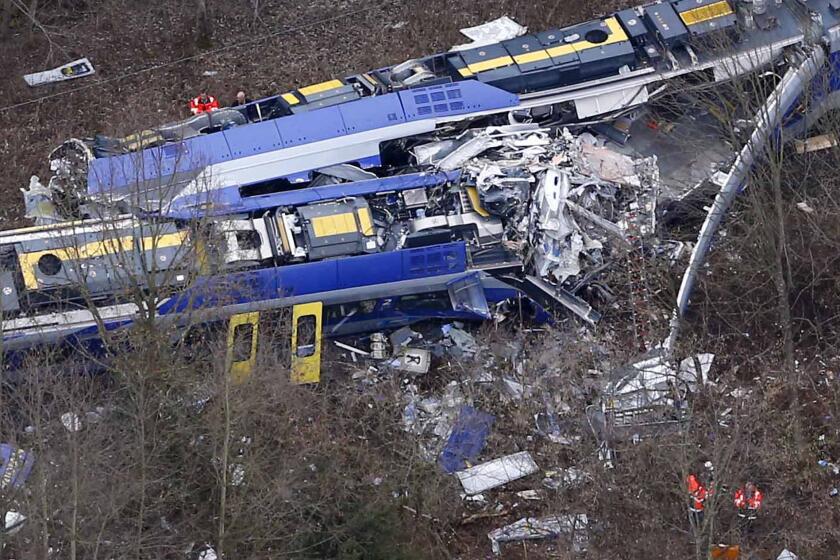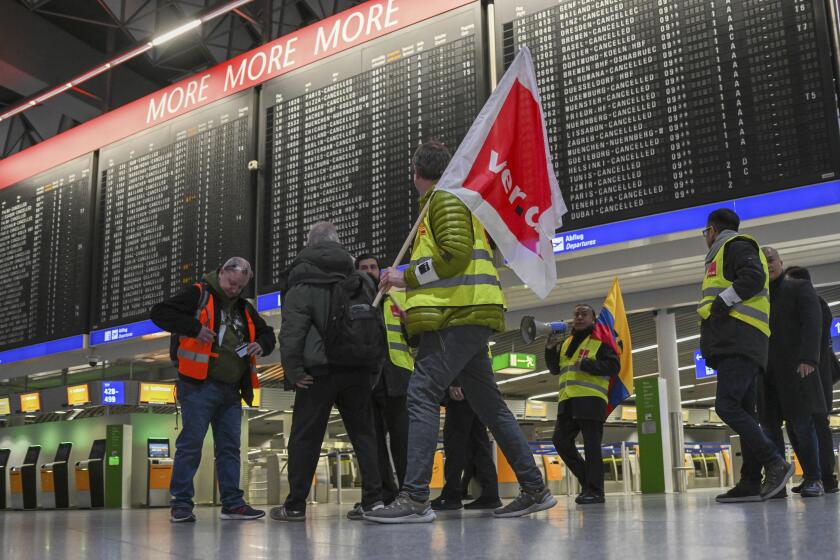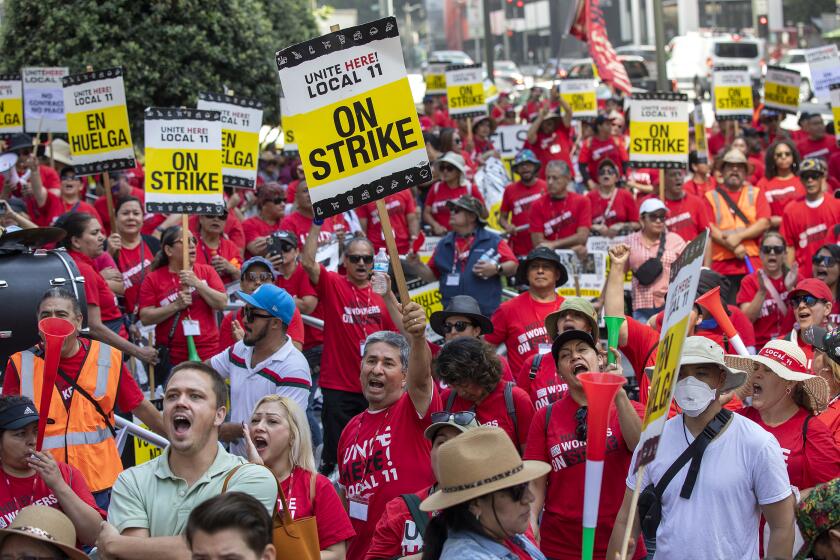3-day strike brings train traffic to a near-standstill across Germany

- Share via
BERLIN — A union representing many of Germany’s train drivers started a three-day strike early Wednesday in a rancorous dispute with the country’s main state-owned railway operator over working hours and pay.
Train travel across the country and in many cities came to a near-standstill, with commuters and other travelers struggling to find alternatives on long-distance buses, in cars or on flights.
State-owned Deutsche Bahn said that only around 20% of its long-distance trains were running and that many regional and commuter trains in cities such as Berlin also were not in operation.
“The strike by the train drivers’ union GDL has had a massive impact on train services in Germany,” said Deutsche Bahn spokeswoman Anja Broeker. “We regret the restrictions and hope that many people who were unable to reschedule their journey will get to their destination.”
The GDL union’s strike on cargo trains began Tuesday evening.
In the wage dispute, the GDL union had already called two previous warning strikes last year, which lasted a maximum of 24 hours in passenger transport. The current strike lasts until Friday at 6 p.m.
A German rail dispatcher was playing an online game on his cellphone shortly before two trains he was in charge of collided on a single-track line, killing 11 people, prosecutors said Tuesday.
Deutsche Bahn had tried to legally prevent the strike until the very end, but on Tuesday night a court ruled that the strike could go ahead.
Late last month, members of GDL voted overwhelmingly to stage open-ended strikes.
In addition to pay raises, the central issue is the union’s call for shift workers’ hours to be reduced from 38 to 35 hours per week without a pay reduction, a demand which employers so far have rebuffed.
GDL argues that it would make working for the railway more attractive and help draw new recruits, while Deutsche Bahn says the demand can’t practically be met.
Hundreds of flights to and from German airports were canceled Friday as workers walked out to press their demands for inflation-busting pay increases.
German Transportation Minister Volker Wissing called on both sides to return to the negotiating table.
“A way has to be found that both sides can get along with,” the minister told daily newspaper Bild. “That means talking to each other. I urge both sides to return to the negotiating table.”
However, union head Claus Weselsky said it was now up to Deutsche Bahn to present an improved offer.
If there’s no new offer before Friday, “we’ll take a break and go into the next strike,” Weselsky said in an interview on public broadcaster ZDF’s morning show after the start of the train drivers’ walkout.
The Laguna Cliffs Marriott in Dana Point became the fourth Southern California property to reach an agreement with Unite Here Local 11, while strikes launched elsewhere.
Mike Walter of Frankfurt expressed exasperation over the strike.
“I have an appointment for a surgery at 10 a.m. that I’ve been waiting for months,” he told the Associated Press in Berlin on Wednesday morning, adding that he had to change his travel plans and come to Berlin a day earlier and stay at a hotel to avoid the strike.
“I mean, if you limit it to 50% or something like that, that’s fine. But you can’t go to zero,” Walter said. “That’s just inconsiderate.”
Dieter Nettersheim, standing near a Deutsche Bahn information counter inside the unusually empty main train station in the western city of Cologne, also criticized the strike.
Start your day right
Sign up for Essential California for the L.A. Times biggest news, features and recommendations in your inbox six days a week.
You may occasionally receive promotional content from the Los Angeles Times.
“I think they have to keep negotiating to get results so that [their dispute] is not being carried out at the expense of the customers,” the 55-year-old said.
The job action coincides with an unrelated one-week strike by farmers who have been blocking city streets and highway access roads in parts of the country since Monday. They have snarled traffic with their tractors to protest a government plan to scrap tax breaks on diesel used in agriculture.
More to Read
Sign up for Essential California
The most important California stories and recommendations in your inbox every morning.
You may occasionally receive promotional content from the Los Angeles Times.
















